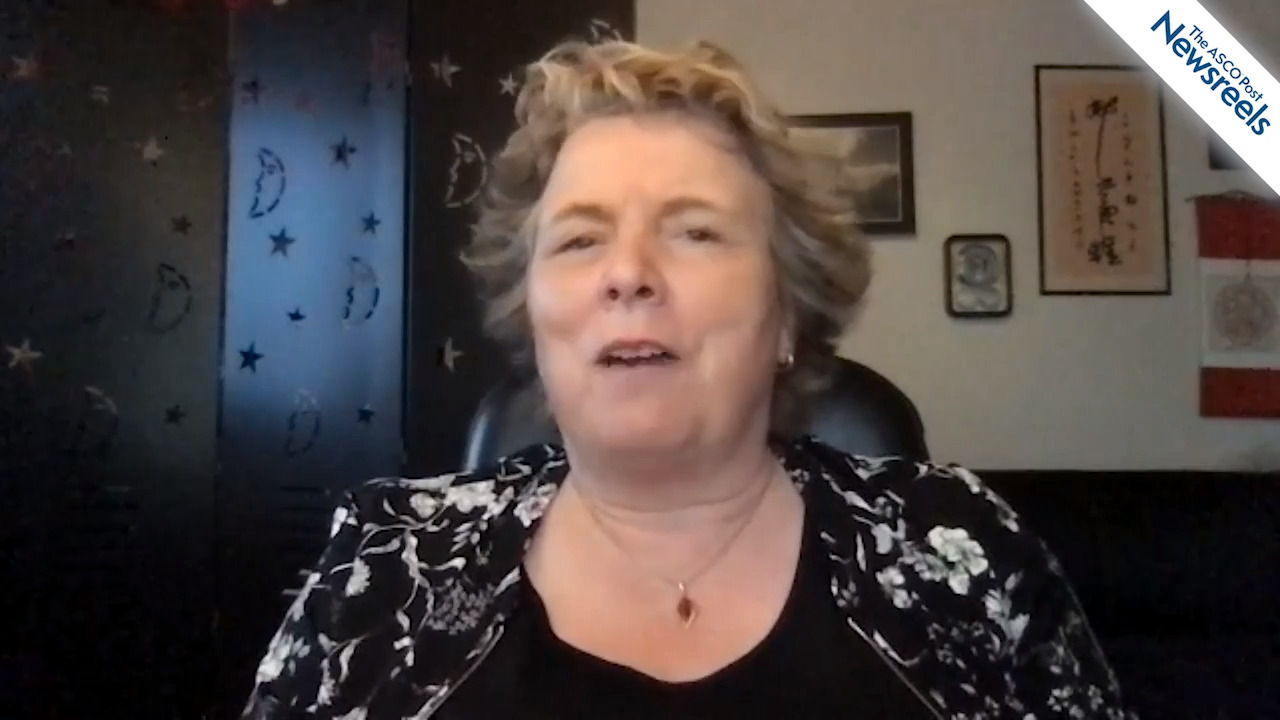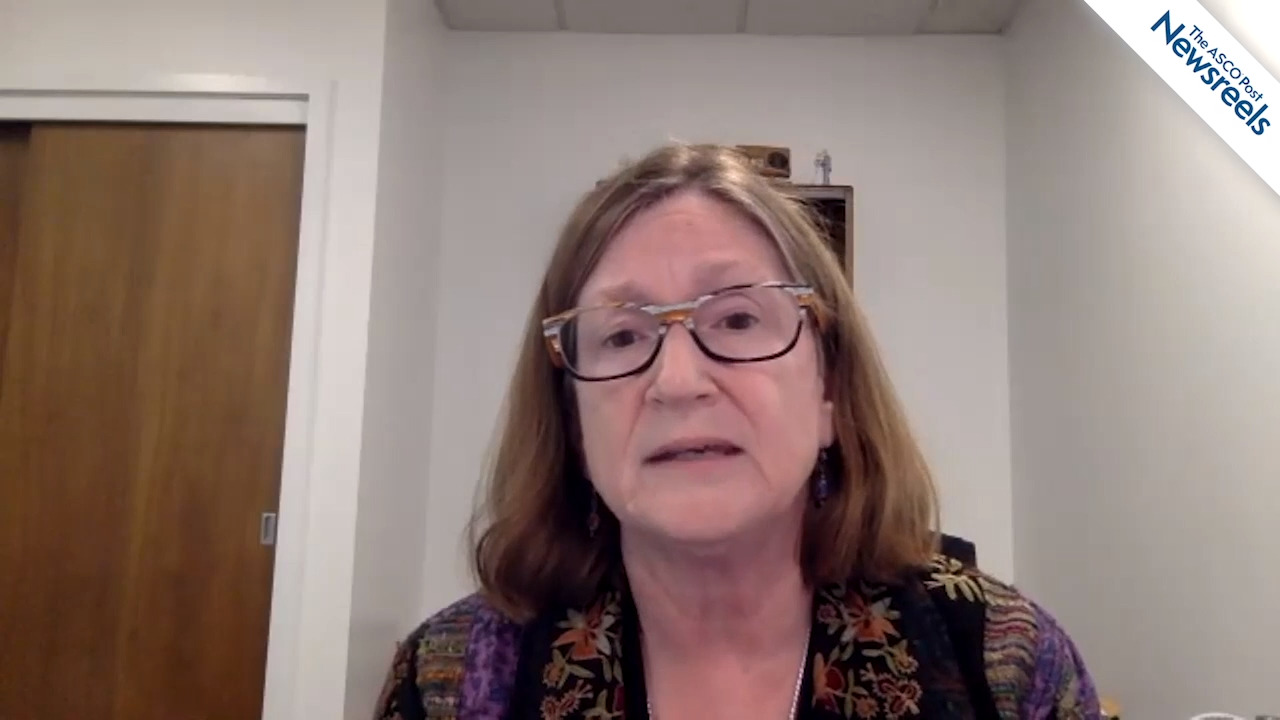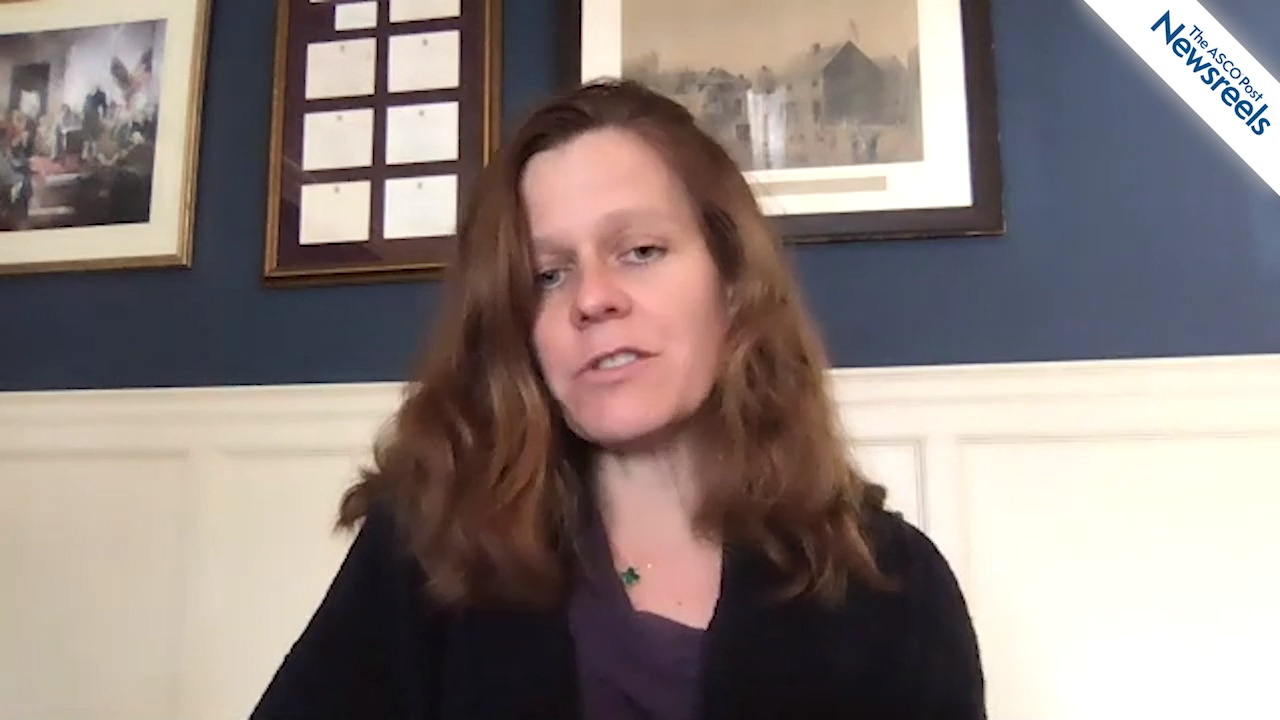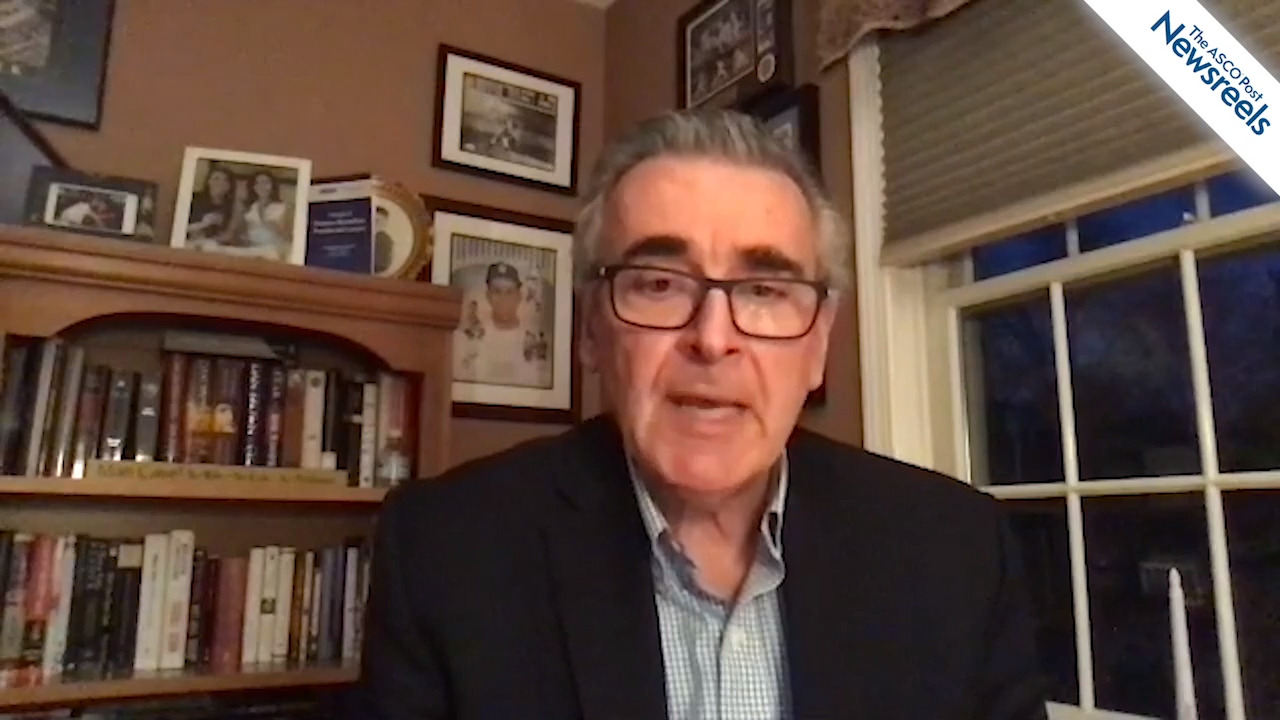Lee S. Schwartzberg, MD, on HER2– HR+ Breast Cancer: Tesetaxel and Capecitabine
2020 San Antonio Breast Cancer Symposium
Lee S. Schwartzberg, MD, of the West Cancer Center, discusses phase III results from the CONTESSA study, which showed that an all-oral regimen of tesetaxel plus a reduced dose of capecitabine significantly improved progression-free survival compared with capecitabine alone in patients with HER2-negative, hormone receptor–positive metastatic breast cancer previously treated with a taxane (Abstract GS4-01).
Editor's note: On March 22, 2021, Odonate Therapeutics announced it was discontinuing the development of tesetaxel and will close the company's operations. Read more here.
The ASCO Post Staff
Nadia Harbeck, MD, of the University of Munich, discusses the first outcome data from the phase III ADAPT HR+/HER– trial, which combined both static and dynamic biomarkers to optimize the adjuvant therapy approach in patients with intermediate- or high-risk luminal early breast cancer (Abstract GS4-04).
The ASCO Post Staff
Roisin M. Connolly, MD, of University College Cork, discusses phase III results from the E2112 trial, which showed exemestane plus entinostat did not improve survival in aromatase inhibitor–resistant advanced HR-positive, HER2-negative breast cancer (Abstract GS4-02).
The ASCO Post Staff
In her recent study, Debra A. Pratt, MD, of the Cleveland Clinic, showed that when breast cancer treatment using any of three modalities takes longer than 38 weeks, it is associated with a decrease in survival, regardless of the receptor status. Patients with breast cancer who received neoadjuvant chemotherapy were more likely to take longer than 38 weeks to complete treatment than those undergoing surgery first (Abstract S11-34 ).
The ASCO Post Staff
Ann H. Partridge, MD, MPH, of Dana-Farber Cancer Institute, discusses results from the ALTERNATE trial on response to neoadjuvant chemotherapy in postmenopausal women with clinical stage II or III estrogen receptor–positive and HER2-negative breast cancer that is resistant to endocrine therapy. The findings highlight the need for more effective treatments in this high-risk population (Abstract GS4-05).
The ASCO Post Staff
Joseph A. Sparano, MD, of the Montefiore Medical Center and Albert Einstein College of Medicine, discusses the development and validation of a tool that integrates the 21-gene recurrence score and clinicopathologic features to individualize prognosis for distant recurrence and predict chemotherapy benefit in patients with early breast cancer with greater precision (Abstract GS4-10).





